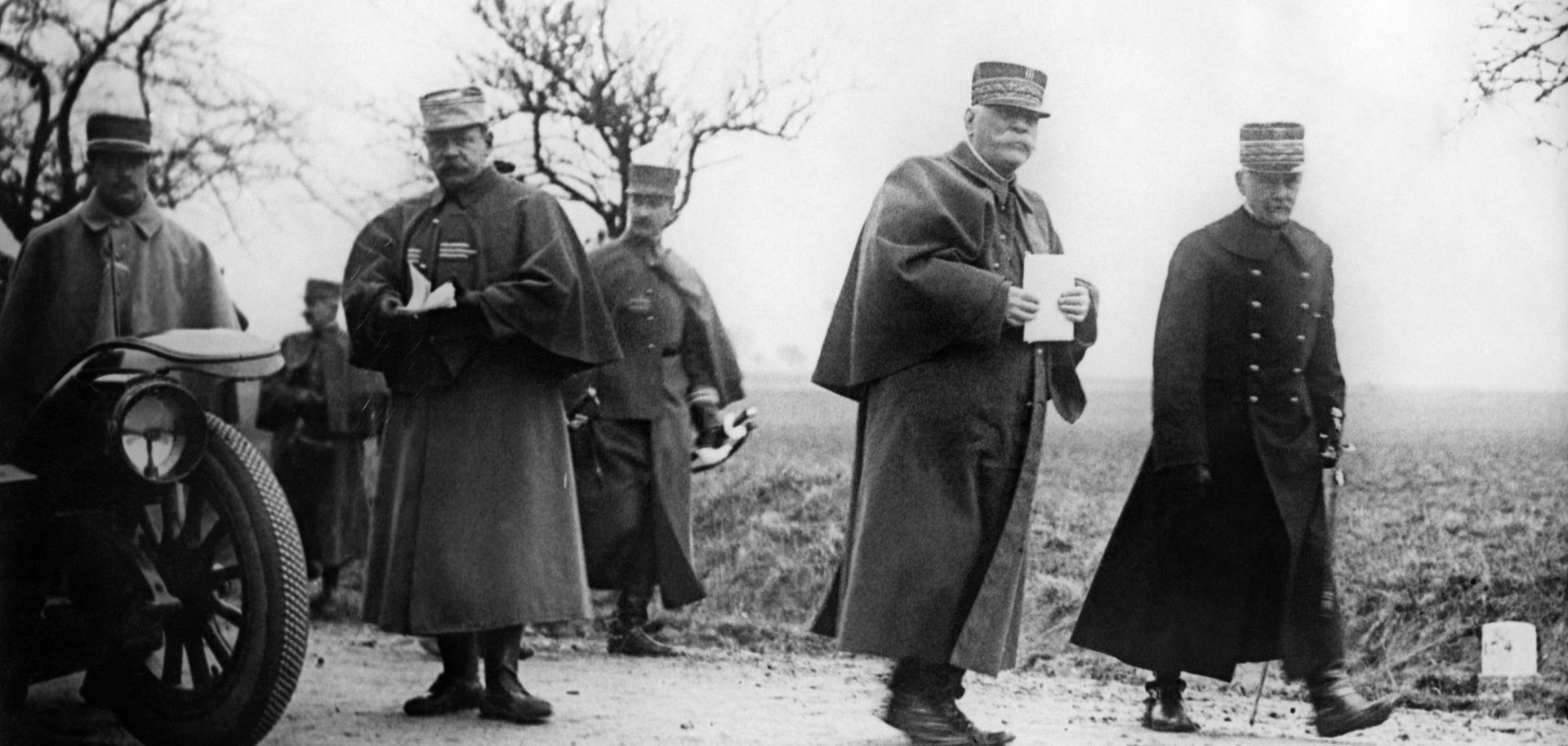GLOBAL PERSPECTIVES
What the Iran Nuclear Deal and Franz Ferdinand Have in Common

May 17, 2018 | 15:48 GMT

French Gen. Michel-Joseph Maunoury, right, walks alongside French army commander Gen. Joseph Joffre during the Battle of the Marne in 1914. The battle, and World War I as a whole, might not have happened were it not for the conspiracy of geopolitical factors and events in 1914.
(ROL/AFP/Getty Images)
Highlights
- The improbable turn of events that led to World War I may not have been so consequential were it not for the shifts simultaneously underway in the global order.
- Today, the dizzying pace of technological advancement and the rapid rate of economic growth in Asia signal another transition in the global order.
- These factors could amplify the effects of the U.S. withdrawal from the Iran nuclear deal, perhaps paving the way for another international conflict.
Subscribe Now
SubscribeAlready have an account?
